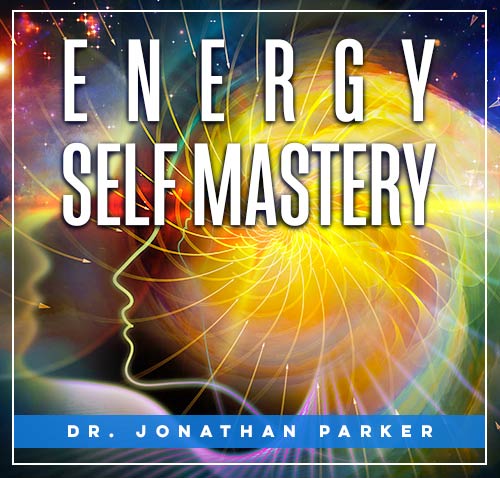How to Cultivate Mindfulness with Awareness

Before diving in, please note: This post is for informational purposes only. If you’d like to know more about how we approach topics, feel free to check out our friendly Disclaimer Page.
Hey there, amazing readers! 🖐️ Just a quick note: yes, we know there are a lot of ads here. Trust us, we get it—it’s not the prettiest look, but they help us keep this blog alive and kicking. Those pesky little ads cover the costs of all the behind-the-scenes magic, from hosting and tech stuff to creating content we hope you’ll love.
We’re committed to delivering quality posts, and your support (even just sticking around despite the ads) means everything to us. So, bear with us, and thanks for helping us keep the good vibes rolling. Now, on to the fun stuff! 😉
TRANSLATE BUTTON AT THE END OF THE ARTICLE
A Quick Overview
In today’s fast-paced world, cultivating mindfulness with awareness has become increasingly important for our mental, emotional, and physical well-being.
Mindfulness is the practice of being fully present and aware of our thoughts, feelings, sensations, and surroundings without judgment.
It involves paying attention to the present moment and accepting it as it is, rather than dwelling on the past or worrying about the future.
Awareness, on the other hand, is the ability to perceive, feel, and be conscious of our thoughts, emotions, and actions.
When combined, mindfulness and awareness can help us lead a more balanced, peaceful, and fulfilling life.
Understanding the Concept of Mindfulness
Mindfulness is rooted in ancient Buddhist traditions but has gained popularity in modern psychology and wellness practices.
It involves bringing our attention to the present moment with openness and curiosity.
By being mindful, we can observe our thoughts and emotions without getting caught up in them, which can help reduce stress, anxiety, and negative thinking patterns.
Mindfulness encourages us to live in the moment, appreciate the little things in life, and cultivate a sense of gratitude and compassion towards ourselves and others.
Importance of Cultivating Mindfulness
Cultivating mindfulness is essential for improving our overall well-being.
It can help us manage stress, enhance our focus and concentration, improve our relationships, and boost our emotional resilience.
By practicing mindfulness, we can become more aware of our thoughts and emotions, which allows us to respond to situations in a more thoughtful and intentional manner.
Mindfulness also promotes self-awareness, self-compassion, and personal growth, leading to a more balanced and fulfilled life.
The Role of Awareness in Mindfulness Practice
Awareness plays a crucial role in mindfulness practice as it allows us to observe our thoughts, emotions, and behaviors without judgment.
By cultivating awareness, we can become more attuned to our inner experiences and the world around us.
Awareness helps us recognize our habitual patterns, triggers, and reactions, enabling us to make conscious choices and respond more skillfully to challenging situations.
By developing awareness, we can deepen our mindfulness practice and cultivate a greater sense of presence, clarity, and wisdom.
Tips for Developing Mindful Awareness
Start with a Beginner’s Mind: Approach each moment with openness and curiosity, as if experiencing it for the first time.
Practice Regular Meditation: Set aside time each day to meditate and cultivate awareness of your breath, body, and thoughts.
Engage in Mindful Activities: Bring mindfulness to daily tasks such as walking, eating, or washing dishes to enhance your awareness.
Observe Your Thoughts and Emotions: Notice the thoughts and emotions that arise without attaching to them or judging them.
Practice Non-Judgment: Accept your experiences as they are without labeling them as good or bad.
Incorporating Mindfulness into Daily Routine
To incorporate mindfulness into your daily routine, try the following:
Morning Routine: Start your day with a few minutes of mindful breathing or meditation to set a positive tone for the day.
Mindful Eating: Pay attention to the taste, texture, and sensations of your food while eating, savoring each bite mindfully.
Mindful Movement: Practice yoga, tai chi, or gentle stretching exercises with awareness of your body and breath.
Mindful Communication: Listen actively and attentively to others without interrupting or judging, fostering better relationships.
Evening Reflection: Take time before bed to reflect on your day with gratitude and self-awareness, preparing for restful sleep.
Mindfulness Meditation Techniques
Mindfulness meditation is a powerful practice for cultivating awareness and presence.
Here are some techniques to try:
Breath Awareness: Focus on your breath as it moves in and out of your body, noticing the sensations and rhythm without controlling it.
Master your Energy and Awaken Your Spirit – start your journey here.
Body Scan: Scan your body from head to toe, bringing awareness to each part and releasing tension or discomfort.
Loving-Kindness Meditation: Cultivate feelings of love and compassion towards yourself and others by repeating affirmations or phrases.
Walking Meditation: Take slow, mindful steps while focusing on each movement and sensation, connecting with the present moment.
Guided Meditation: Listen to guided meditations that lead you through mindfulness practices, helping you stay focused and present.
Cultivating Awareness Through Mindful Breathing
Mindful breathing is a simple yet powerful technique for cultivating awareness and calming the mind.
To practice mindful breathing:
Find a Quiet Space: Sit or stand in a comfortable position where you won’t be disturbed.
Focus on Your Breath: Notice the sensation of your breath as it enters and leaves your body.
Count Your Breaths: Inhale deeply for a count of four, hold for four, exhale for four, and repeat.
Anchor Your Awareness: Whenever your mind wanders, gently bring your focus back to your breath.
Practice Regularly: Set aside a few minutes each day to practice mindful breathing, gradually increasing the duration as you become more comfortable.
Practicing Mindful Eating for Awareness
Mindful eating involves paying full attention to the experience of eating, from the taste and texture of food to the sensations in your body.
To practice mindful eating:
Eat Mindfully: Slow down and savor each bite, noticing the flavors, smells, and textures of your food.
Chew Slowly: Take the time to chew your food thoroughly, allowing yourself to fully experience each mouthful.
Engage Your Senses: Use all your senses to appreciate the colors, shapes, and sounds of your meal.
Observe Your Hunger Cues: Notice when you’re hungry or full, tuning into your body’s signals rather than eating out of habit or emotion.
Express Gratitude: Be grateful for the nourishment and pleasure that food provides, cultivating a sense of appreciation for each meal.
Using Mindful Movement for Greater Awareness
Mindful movement practices such as yoga, tai chi, qigong, or walking meditation can help cultivate awareness of your body, breath, and surroundings.
To practice mindful movement:
Focus on Your Body: Notice the sensations, movements, and alignment of your body as you move.
Breathe Mindfully: Coordinate your breath with your movements, inhaling and exhaling with intention.
Stay Present: Bring your attention back to the present moment whenever your mind wanders or distractions arise.
Connect with Nature: Practice mindful movement outdoors to immerse yourself in the sights, sounds, and sensations of the natural world.
Enjoy the Journey: Embrace the process of movement as a form of meditation, allowing yourself to be fully present and engaged in the moment.
Cultivating Mindful Relationships
Mindful relationships are built on compassion, empathy, and understanding.
To cultivate mindful relationships:
Practice Active Listening: Pay full attention to others when they speak, showing empathy and understanding without interrupting or judging.
Communicate Mindfully: Express your thoughts and feelings honestly and respectfully, using non-violent communication techniques.
Show Appreciation: Acknowledge and appreciate the qualities and efforts of others, fostering a sense of gratitude and connection.
Set Boundaries: Establish healthy boundaries in relationships to protect your well-being and maintain self-respect.
Practice Forgiveness: Let go of resentment and grudges, offering forgiveness and compassion towards yourself and others.
Overcoming Challenges in Mindfulness Practice
While cultivating mindfulness with awareness can be transformative, it may also present challenges.
Here are some common obstacles and how to overcome them:
Restlessness: If you find it hard to stay focused, try incorporating movement-based mindfulness practices like walking meditation or yoga.
Impatience: Practice patience and self-compassion, reminding yourself that mindfulness is a skill that takes time to develop.
Judgment: Notice when judgment arises and practice self-acceptance and non-judgment towards your thoughts and emotions.
Distractions: Minimize distractions during mindfulness practice by finding a quiet, peaceful environment or using calming music or guided meditations.
Inconsistency: Establish a daily mindfulness routine and set reminders to help you stay consistent and committed to your practice.
Benefits of Cultivating Mindfulness with Awareness
The practice of cultivating mindfulness with awareness offers a wide range of benefits for our mental, emotional, and physical well-being:
Stress Reduction: Mindfulness helps reduce stress and anxiety by promoting relaxation and present-moment awareness.
Improved Focus and Concentration: By training our attention, mindfulness enhances our ability to concentrate and stay focused on tasks.
Enhanced Emotional Regulation: Mindfulness cultivates emotional intelligence and resilience, allowing us to respond to challenging situations with calmness and clarity.
Better Relationships: Mindful awareness fosters empathy, compassion, and effective communication, leading to healthier and more fulfilling relationships.
Greater Self-Awareness: By observing our thoughts and emotions with mindfulness, we gain insight into our habits, patterns, and beliefs, promoting personal growth and self-discovery.
In conclusion, cultivating mindfulness with awareness is a powerful practice that can transform our lives in profound ways.
By developing a deeper sense of presence, clarity, and compassion, we can navigate the ups and downs of life with grace and resilience.
Through regular practice and dedication, we can cultivate mindfulness and awareness in every aspect of our lives, leading to greater well-being, fulfillment, and inner peace.
Embrace the journey of mindfulness with an open heart and a curious mind, and watch as it enriches your life in ways you never thought possible.

The Enlightenment Journey is a remarkable collection of writings authored by a distinguished group of experts in the fields of spirituality, new age, and esoteric knowledge.
This anthology features a diverse assembly of well-experienced authors who bring their profound insights and credible perspectives to the forefront.
Each contributor possesses a wealth of knowledge and wisdom, making them authorities in their respective domains.
Together, they offer readers a transformative journey into the realms of spiritual growth, self-discovery, and esoteric enlightenment.
The Enlightenment Journey is a testament to the collective expertise of these luminaries, providing readers with a rich tapestry of ideas and information to illuminate their spiritual path.
Our Diverse Expertise 🌟
While our primary focus is on spirituality and esotericism, we are equally passionate about exploring a wide range of other topics and niches 🌍📚. Our experienced team is dedicated to delivering high-quality, informative content across various subjects ✨.
To ensure we provide the most accurate and valuable insights, we collaborate with trusted experts in their respective domains 🧑🏫👩🏫. This allows us to offer well-rounded perspectives and knowledge to our readers.
Our blog originally focused on spirituality and metaphysics, but we’ve since expanded to cover a wide range of niches. Don’t worry—we continue to publish a lot of articles on spirituality! Frequently visit our blog to explore our diverse content and stay tuned for more insightful reads.







